Biodiversity education projects
A range of professional, community and student education programs for biodiversity conservation. Share your project
Zoos Victoria - Teacher Professional Development
Zoos Victoria - Animal teaching and learning resources for students
Ecolinc - Biodiversity of the Western Plains
Green Karma - Wildlife Warrior Workshops
Marine Mammal Foundation education programs
Moonlit Sanctuary Wildlife Conservation Park
Port Phillip EcoCentre education program
Woodleigh School Brian Henderson Wildlife Reserve
Narmbool environmental discovery programs (no longer operating)
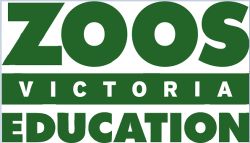
Zoos Victoria - Teacher PD
Zoos Victoria - Professional Development Opportunities for teachers:
- On-site workshops aimed teachers who want to include real-world content with a focus on conservation in their teaching. Zoos Victoria - Teacher PD
- Teacher Professional Development Webinars - free online 60-minute workshops throughout the year with a Zoo Teacher. Content aimed at supporting the Victorian Early Years Learning and Development Framework and Victorian Curriculum. PD Live Webinars
- Teacher Professional Development On-demand - one hour workshop with supporting material - free for Teacher Members. On-demand PD workshops
Zoos Victoria - Animal teaching and learning resources for students
Species toolkits for Primary and Secondary students covering each of the 27 Fighting Extinction species and more. The species toolkits contain videos, scientific information, media links and actions which can be undertaken. The toolkits provide links to the Science curriculum for Primary, Secondary and VCE/VCE VM.
Zoos Victoria - Animal Teaching Resources
ClimateWatch
ClimateWatch is an authentic learning experience that can be incorporated into secondary and tertiary school subjects, school ground explorations, field excursions, camps, or a long-term learning and phenology-monitoring activity. Taking part in citizen science that monitors and records plant and animal behaviour is naturally aligned to the Science stream of the national curriculum. ClimateWatch is also a great way to build student capacity in critical and creative thinking, numeracy and ITC skills.
Create a ClimateWatch ‘group’
Class groups can be created by the Earthwatch team where students are added to the group through account invitations. The results of each group can then be compared against each other, year after year. If a group set-up is requested, the Earthwatch team sends invitations out to the student email addresses before the start of the teaching term. Students will need to accept their invitation and will be prompted to change their password.
Individual users/students can download their sightings in a .csv file to be submitted as part of assessment under the ‘download sightings’. Legacy CW data from 2009 can also be provided to teachers as an educational tool upon request.
Teachers added as ‘group coordinators’ will be able to see which students have recorded sightings under ‘group activity report’. Students can be introduced to the app early in the teaching term and make observations in their own time.
Climate Watch for Educators
Earthwatch Australia's ClimateWatch program has partnered with Cool Australia to build lessons in the areas of mathematics, geography, and science. The lessons focus on phenology, climate change and citizen science and are all linked to the Australian Curriculum and syllabus.
ClimateWatch for Educators fact sheet - pdf
Web links
WaterWatch & River Detectives
Waterwatch Victoria and Catchment Management Authorities have developed a range of resources to support environmental educators.
WaterWatch educational resources
River Detectives is an education initiative of Catchment Management Authorities for teachers and students to engage in cross-curricular, citizen-science activities.
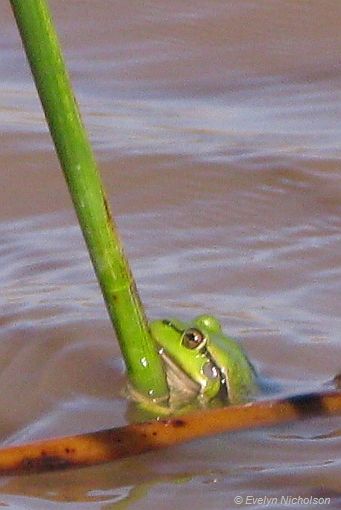 |
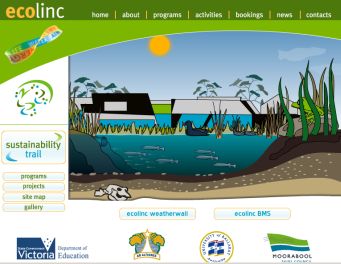 |
Ecolinc - Biodiversity of the Western Volcanic Plains on-line program
Ecolinc www.ecolinc.vic.edu.au is an established Department of Education and Early Childhood Development (DEECD) statewide Science Specialist Centre situated on the site of Bacchus Marsh College. Key stakeholders include Bacchus Marsh College, the University of Ballarat and the Moorabool Shire Council.
Ecolinc develops and delivers innovative curriculum programs using a range of technologies, for students from prep to tertiary level, and teacher professional learning programs. Ecolinc, with support from the Department of Education and Early Childhood Development (DEECD), has successfully received a Department of Sustainability (DSE) ‘Vision for Werribee Plains’ grant to develop an online learning program focusing on the biodiversity of the Western Volcanic Plains. Learning tools being developed over a period of time include:
- iPad/iPhone/iPod Touch application based on identification and mapping of Western Plains grassland plant and animal species
- Online plant and animal survey of Western Plains species observed over time, complete with plant and animal identification guides
- ‘Quadrats Online’, an online plant quadrat program which allows students to virtually map and assess an actual plant quadrat over time
- ‘Managing Grassland Ecosystems’, an interactive learning object enabling students to explore a range of environmental management decisions
- ‘Talk with the experts’ working within the Western Volcanic Plains including both scientific and career information video
- Photo gallery of Werribee Plains flora and fauna
- Interactive quiz
- Virtual excursion to Mt Rothwell Sanctuary featuring a range of Mt Rothwell species.
See: Ecolinc on-line learning site Biodiversity of the Western Volcanic Plains
Contact: Suzan M Clark; 03 5367 0171 Ecolinc web site
Green Karma - Wildlife Warrior Workshops
Wildlife Warrior Workshops - School Holidays Program for 12-18 year old’s is a special program curated for teens who have a keen interest in wildlife. The program covers topics such as Wildlife rescue techniques, building birds, possums, bats and bee boxes, native planting and gardening, basics of wildlife protection, group discussions, films, guest speakers, and much more.
The program is a unique blend of fun activities and lots of different learnings:
- Foster critical thinking
- New social connections
- Skill development
- Feel good connecting with nature
- Nurture compassion
- Do good for others
See: https://www.greenkarma.org.au/ or e-mail greenkarma.au@gmail.com
Marine Mammal Foundation - education programs

The Marine Mammal Foundation’s innovative and ground breaking Education Program combines real applied research to student learning. Location: Victoria.
Primary School Education Program: Adaptations, Ecosystems, Food Chains and Food Webs, Sustainability in a Changing World.
Secondary School Education Programs: Classification, Populations, Ecosystems, Food Webs, Adaptation & Evolution, Sustainability in a Changing World.
Geography Programs: Water in the World, Landforms & Marine Landscapes, Ocean Biome & Food Security, Environmental Change & Management.
Outreach and Discovery programs: Marine Litter, Dolphin Discovery, Marvellous Marine Mammals, Our Amazing Oceans, Sustainability in a Changing World.
Education and Community Outreach Programs: Port Phillip ‘Bin Not Bay’:
Moonlit Sanctuary Wildlife Conservation Park

Moonlit Sanctuary contains over 70 species of native fauna. There are a range of experiences for the visitor to learn about Australia’s native wildlife as well as specific educational programs.
Education
Moonlit Sanctuary operates a variety of education programs, many are linked to the current Victorian Curriculum.
Kinder and pre-school
Primary and Secondary programs.
- Foundation to Grade 2
- Grades 3-6
- Year 7-8
- Year 9-10
VCE programs
- Environmetal Science Unit 3 Biodiversity
- Geography Unit 2 Tourism
Tertiary Programs
- Biological Sciences
- Science Inquiry Skills
- Science as a Human Endeavour
- Cross-Curriculum priority “Learning about Sustainability”.
- Learning Capabilities “Ethical” and “Critical and Creative Thinking”
International and EAL
A school holiday program operates in January for kids to enjoy environmental activities, animal encounters and native animal care.
https://moonlitsanctuary.com.au/
https://moonlitsanctuary.com.au/education/
Narmbool Environmental Discovery Programs
(No longer active)
Students explore the magnificent bushland and pastures that make Narmbool a popular choice for school camps with a focus on environmental science. A highly creative program blends science and the Arts with a big measure of fun. Students discover life’s diversity in the bush and then make their own unique responses to their Narmbool experience. The overall aim of the program is to equip students with the skills to articulate a view about the importance of sustainability and protecting diversity.
By visiting and examining some biodiversity hot spots across the property, students learn about healthy habitats, how all things are connected in ecosystems, and the impact of human decisions in maintaining a healthy environmental balance.
Narmbool Environmental Discovery programs are designed by Sovereign Hill’s Education Officers, who are qualified teachers, to cater for middle years students. Students learn or enhance a variety of skills, including bushwalking, orienteering, navigation, animal and plant identification, tracking and water quality testing
Port Phillip EcoCentre
The Port Phillip Eco-centre schools and ELC programs allow students to connect to their local environment, especially Port Phillip Bay and Aboriginal Cultures and history. Students will be empowered to take sustainability action within their school, community and at home.
Port Phillip Eco-centre programs and excursions are linked to outcomes from VEYLDF, Victorian Curriculum and ResourceSmart Schools.
http://www.ecocentre.com/schools
Alive Outside sessions walk, cycle and snorkel their way around the beaches, foreshore and reserves within the City of Port Phillip. Help protect our local wildlife by making nest boxes, weeding and growing and planting native plants.
The Alive Outside sessions are available to all 2 – 25 year olds who live, work and play in the City of Port Phillip. The Alive Outside program provides organised sessions (where you register and turn up) or sessions specifically for a group (schools, youth groups, guides or scouts).
http://www.ecocentre.com/Alive-Outside
Science for All
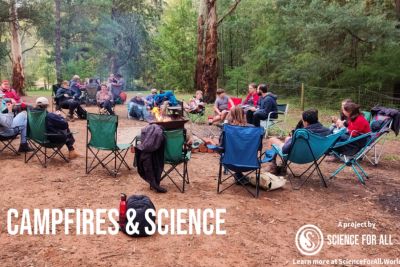
'Science for All' is an organisation which exists to facilitate the learning, sharing and creation of knowledge. We enable people to share knowledge and ideas, use the scientific method to create new knowledge and support more people to get involved in shaping the future of human knowledge. Local projects in the Victorian Central Highlands (including Marysville, Healesville, Toolangi) include:
- Campfires and Science
- How to use environmental DNA to detect species
- Standardised Data on Initiatives (STARDIT) is a proposed way of sharing data about ‘research’, ‘interventions’, ‘projects
https://scienceforall.world/events/
Serendip education program
Engage your students to connect with ecosystems and native wildlife of the volcanic Western Plains of Victoria.
Parks Victoria is offering a curriculum based education program at Serendip Sanctuary which enables students to interact with wetland and grassy woodland habitats and up close to native wildlife.
A trained and qualified education officer can deliver free curriculum based activities that are adapted to meet the specific AusVELS standards or VCE outcomes. Students are inspired to become citizen scientists and can take part in hands-on science activities including aquatic invertebrate studies and fauna surveys.

If you would like to discuss how you can include a trip to Serendip Sanctuary into your teaching program please call Parks Victoria 131963 and ask for an eduction officer.
Parks Victoria Education Excursions at Serendip Sanctuary
Beach Nesting Birds education
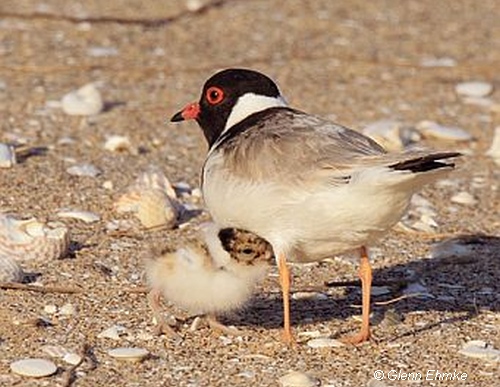
Birdlife Australia offers free professional development workshops and resources for teachers regarding beach nesting birds.
Beach Nesting Birds education includs the Beach Nesting Birds education kit - ‘Bringing the Coast to the Classroom', the Wing Thing Magazine and the Beach-nesting Birds Education Program.
Beach Nesting Birds education for teachers & kids- Birdlife Australia.
Contact: Dr. Meghan Cullen, Education and Conservation Officer, Beach-nesting Birds, 03 93470757
Woodleigh School - Brian Henderson Wildlife Reserve
The Woodleigh School in Langwarrin South opened a Wildlife Reserve in 2007 and named it honour of Brian Henderson, Deputy Principal for the first 34 years of the school and a committed conservationist, who specialised in Banksia’s.
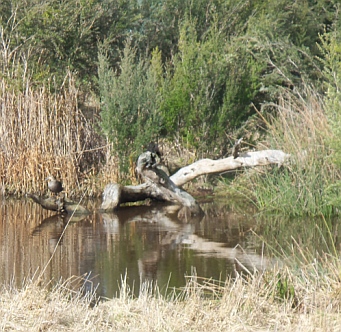 |
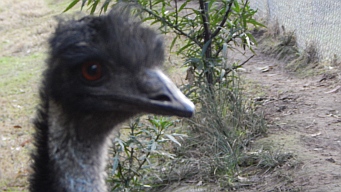 |
The work of the Reserve is supported by the student environment group, Woodleigh School Field Gnats, and a community based group, the Friends of the Brian Henderson Wildlife Reserve. The Reserve is used extensively within the schools curriculum and co-curricula programs by all three campuses – two primary schools and the senior campus. We also have visits from other local schools and many students in neighbouring schools and in local scout groups join us on our conservation volunteer visits to Mt Rothwell Biodiversity Interpretation Centre, Tiverton at Dundonnell and the Dunkeld Pastoral Company and at working bees within the Reserve.
The Reserve is a little over 4ha in size with a 2.4m T-topped electrified predator proof fence divided into two sections. The western half has a large permanent dam and dense heathland vegetation. The eastern half is an open grassy woodland with riparian vegetation along a tributary of Watson’s Creek that flows through the school.
The Wildlife Reserve currently has Eastern Grey Kangaroos, Swamp Wallabies and Emus free ranging within the reserve. There are 5 Eastern Quoll, 1 Tiger Quoll and 2 male Squirrel Gliders in enclosures. The Eastern Quolls are part of a mainland breeding population managed across 6 reserves in three states (Victoria, New South Wales and the ACT) with connection to reserves in Tasmania.
- Friends of Brian Henderson Reserve
Contact: Gary Simpson, Director of the Brian Henderson Wildlife Reserve, Woodleigh School, 03 5971 6100
Other related education sites
See also: Threatened species projects


